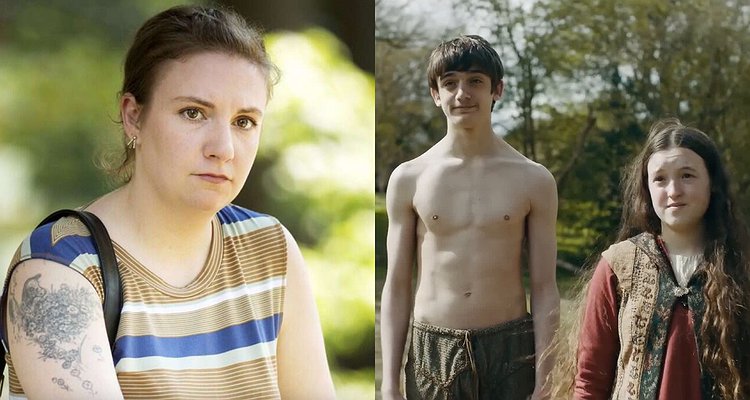Lena Dunham on creating 13th century LGBTQ character for Catherine Called Birdy
Exclusive: "It's terrible how much had to be hidden," says Dunham of the period - before reflecting on the LGBTQs of Girls (including how "Jessa was bisexual")

Catherine Called Birdy director Lena Dunham has described creating an LGBTQ character for her new film – set in 1290.
The new Amazon Studios comedy follows a teenage girl (Bella Ramsey) trying to foil her father’s plans to marry her off to a wealthy suitor.
It is eventually revealed that Birdy’s best friend Perkin, played by Michael Woolfitt, wants to marry a man himself.
“It’s terrible how much of it had to be hidden”
– Lena Dunham
Asked how she met the challenge of creating Perkin given the historical context, Dunham told Attitude: “The book that it’s based on [written by Karen Cushman] does not have an explicitly LGBTQ character. It was important to me, not just because some of my closest friends and family members are LGBTQ, but because it’s the right thing to do, that there be a character who is able to represent what it meant to be queer at this time in history.”
Speaking at the film’s London premiere last week, the 36-year-old continued: “That character was a teenage boy named Perkin, who is a goat herd and is constantly being asked when he’s going to marry a woman and who he wants to marry. He’s finally able to admit to his friend Birdy, without saying it – she says: ‘Would you rather marry a man instead?’ – and he [lets it be known] that, in fact, he would.”
The Girls star continued: “We have so much evidence in history of people who formed various [same-sex] marriages and partnerships before it was legal. What’s so terrible is how much of it had to be hidden. So, what I wanted to show is that, even in the context of 1290, this character could find a place to talk about it with one understanding friend.”
According to the Human Dignity Trust’s History of LGBT Criminalisation, The Buggery Act of 1533 first outlawed homosexuality in England, although previous medieval legal sources outlawed “sodomy”.
In 1290, the medieval treatise Fleta (written in Latin) saw sodomy as an offence against God, punishable by being buried alive or burnt to death. (Fordham University sourcebooks state that it is improbable these punishments were carried out.)
Lena Dunham, who previously directed the films Tiny Furniture and Sharp Stick, also told Attitude: “Some of the most formative relationships in my life were as a teenage girl with young gay men, and how we grew up together.”
Asked for the most powerful lesson she learned about LGBTQ representation on Girls, the HBO TV show she created and starred in, Lena Dunham said: “I think often when there’s just one or two LGBTQ characters, people want them to be this perfect and good LGBTQ person, because they have to represent all of that. Girls was about flawed people, so whether it was Elijah, who was constantly getting himself into messes, or some of the people he dated, or the fact Jessa was bisexual, or Taco, Adam’s best friend who was a gay woman – it was making sure all the characters were allowed to be messy.”
Catherine Called Birdy, also starring Billie Piper and Andrew Scott, begins streaming on Prime Video on 7 October.
The September/October issue of Attitude is available on newsstands and to download and order in print now.
